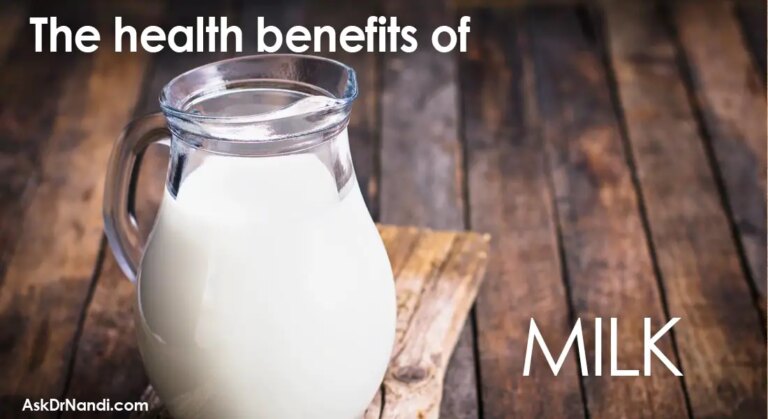Kimchi is a traditional mix of fermented vegetables that is the mainstay of Korean cuisine. Researchers are starting to discover the health benefits of this nutritious and health-promoting food. Kimchi is prepared by fermenting vegetables with probiotic bacteria, including cabbage, garlic, onion, ginger, red pepper, etc.
Nutrition Facts of Kimchi
Kimchi is high in nutrients while being low in calories. Chinese cabbage, one of the critical components of kimchi, contains at least 10 different minerals and over 34 amino acids on its own.
Kimchi’s nutritional content varies considerably depending on the vegetables used and the time they’re aged. However, a 1-cup (150-gram) portion has approximately:
- Calories: 23
- 4 grams of carbohydrates
- 2 grams of protein
- Less than 1 gram of fat
- 2 grams of fiber
- 747 milligrams of sodium
- It contains 19% of the Daily Value (DV) of vitamin B6
- It has 22% of the Daily Value (DV) of vitamin C
- It has 55% of the Daily Value (DV) of vitamin K
- It contains 20% of the Daily Value (DV) of folate
- It contains 21% of the Daily Value (DV) of iron
- It has 10% of the Daily Value (DV) of niacin
- It has 24% of the Daily Value (DV) of riboflavin
Vitamin K and riboflavin are present in significant quantities in several green veggies. Because kimchi frequently contains a variety of greens, including cabbage, celery, and spinach, it’s typically a good source of these minerals.
Vitamin K is essential for various bodily functions, including bone development and blood clotting, while riboflavin aids energy production, cellular growth, and metabolism. As a result of fermentation, your body can absorb additional nutrients more readily.
Health Benefits of Kimchi
Here are some of the amazing health benefits of kimchi.
Kimchi Contains Probiotics
Kimchi is extremely low in calories and fat but exceptionally nutrient-dense. Many people who eat kimchi get a lot of vitamin C and beta-carotene. A serving of kimchi also contains many necessary minerals, fiber, and phytochemicals. Researchers believe phytochemicals are responsible for much disease protection from diets high in fruits, vegetables, beans, cereals, and plant-based beverages. Kimchi has been found to contain numerous probiotic strains important to good stomach health. Researchers have compared kimchi to yogurt, stating that kimchi can be considered a probiotic vegetable food, while yogurt is a health-promoting dairy probiotic food.
Kimchi May Strengthen Your Immune System
They are studying kimchi and its ability to stimulate the immune system. Some studies have shown that kimchi may have the ability to decrease the risk of viral infections such as the flu. Researchers find that kimchi stimulates the growth of immune cells found in the spleen, bone marrow, thymus, and B cells. One probiotic strain in kimchi is known to increase the production of immunoglobulin A, an antibody that plays an essential role in immunity. More research is required before this claim can be verified.
Kimchi May Reduce Inflammation
Kimchi and other fermented foods may help reduce inflammation by supporting the growth of healthy bacteria. A mouse study discovered that one of the main components in kimchi, HDMPPA, improved blood vessel health by lowering inflammation.
In another study, a kimchi extract (91 mg per pound of body weight) for two weeks reduced inflammation-related enzymes in mice. Meanwhile, a test-tube study found that HDMPPA has anti-inflammatory effects by blocking and inhibiting the production of inflammatory chemicals. Human studies are needed, though.
Kimchi May Slow Aging
Kimchi has been the subject of a lot of research concerning its potential to prolong life. Researchers believe that the presence of antioxidants and vitamins is the reason. A recent study looking at kimchi’s anti-aging potential showed that it helped regulate and lessen the inflammation that speeds up the aging process. The study found that kimchi could reduce oxidative stress in the cells. It also inhibited lipid peroxidation and extended the life span of the subjects. Studies are ongoing.
Kimchi May Prevent Yeast Infections
Kimchi’s probiotics and beneficial microorganisms may help prevent yeast infections. When the Candida fungus, usually benign, proliferates in the vagina, it causes vaginal yeast infections. In the United States alone, 1.4 million people suffer from this disease each year.
As this fungus may become resistant to antibiotics, many specialists are looking for natural cures. Certain Lactobacillus strains have combat Candida in test-tube and animal studies. In one test-tube study, several strains of kimchi obtained from different regions exhibited antibacterial activity against this fungus. Nonetheless, more study is needed.
Kimchi May Aid Weight Loss
Researchers have found a link between kimchi and other fermented vegetables and their ability to help obese individuals. Studies have shown that eating kimchi has helped obese people decrease their body weight, body mass index, waist to hip ratio, and body fat percentage. Researchers have discovered that kimchi can improve several metabolic factors associated with being overweight. These factors increase heart disease and diabetes, such as fasting blood sugar, cholesterol, and blood pressure. Early results have shown that kimchi has improved insulin function and helped lower average blood glucose levels.
Kimchi May Support Heart Health
According to some studies, kimchi may help prevent heart disease. It might be owing to its anti-inflammatory properties, as recent evidence suggests that inflammation is a possible root cause of heart disease.
In an 8-week experiment on mice fed a high cholesterol diet, kimchi extract decreased blood and liver fat levels of those in the control group. Furthermore, it appeared to inhibit fat accumulation. It is critical since excessive fat accumulation in these areas might lead to heart disease.
Meanwhile, a weeklong study of 100 persons revealed that eating 0.5–7.5 ounces (15-210 grams) of kimchi per day reduced blood sugar, total cholesterol, and LDL (bad) cholesterol levels, which are risk factors for heart disease. Nonetheless, more human research is necessary.
Kimchi May Promote Digestion
Kimchi is a pickled vegetable that aids in the digestion process. It contains probiotics, which may be derived from the fermentation process. Fermentation not only improves the flavor of kimchi but also generates beneficial bacteria known as Lactobacillus, which are required by the body to maintain healthy intestinal flora.
Kimchi May Regulates Cholesterol
Scientists from Pusan National University in South Korea discovered in a random study that kimchi helps reduce total cholesterol and LDL (harmful) cholesterol levels and blood glucose concentration in the body.
Kimchi consumption has a beneficial impact on cholesterol levels. Garlic, used to make it, contains lots of selenium and allicin. Selenium and allicin are two substances present in garlic that are believed to aid in lowering harmful levels combined with a balanced diet and exercise. Allicin, a prominent component that may lower cholesterol levels, appears to reduce the risk of heart disease, including strokes and heart attacks. Selenium also protects the artery walls by preventing plaque formation and lowering the incidence of atherosclerosis.
Kimchi Provides Antioxidants That Can Help Fight Cancer
Cancer preventative nutrients and spices in kimchi provide anti-inflammatory properties. They promote general better health and longevity while also slowing down oxidative stress. For example, different color types of cabbage contain essential antioxidant and anti-inflammatory compounds. Garlic, ginger, red peppers, onions, and radishes are all high in antioxidant compounds that help to decrease inflammation. Anti-inflammatory meals are critical for preventing chronic illnesses linked with oxidative stress, such as cancer, dementia, and heart disease.
References:
- Cabbage (Brassica oleracea L. var. capitata) phytochemicals with antioxidant and anti-inflammatory potential – PubMed (nih.gov)
- Kimchi, a fermented vegetable, improves serum lipid profiles in healthy young adults: randomized clinical trial – PubMed (nih.gov)
- Effect of red pepper seed on Kimchi antioxidant activity during fermentation (fao.org)
- Biochemical, microbiological, and nutritional aspects of kimchi (Korean fermented vegetable products) – PubMed (nih.gov)
- Kimchi and Other Widely Consumed Traditional Fermented Foods of Korea: A Review – PubMed (nih.gov)
- Vitamin K – Health Professional Fact Sheet (nih.gov)
- Riboflavin – Health Professional Fact Sheet (nih.gov)
- Fruits and vegetables, as a source of nutritional compounds and phytochemicals: Changes in bioactive compounds during lactic fermentation – PubMed (nih.gov)
- Health benefits of fermented foods: microbiota and beyond – PubMed (nih.gov)
- Health benefits of fermented foods – PubMed (nih.gov)
- Fermented Foods as a Dietary Source of Live Organisms – PubMed (nih.gov)
- Microbial production of lactic acid: the latest development – PubMed (nih.gov)
- Inclusion of fermented foods in food guides around the world – PubMed (nih.gov)
- Lactobacillus acidophilus: MedlinePlus Supplements
- Characterization of Arginine Catabolism by Lactic Acid Bacteria Isolated from Kimchi – PubMed (nih.gov)
- One Health, Fermented Foods, and Gut Microbiota – PubMed (nih.gov)
- Expert consensus document. The International Scientific Association for Probiotics and Prebiotics consensus statement on the scope and appropriate use of the term probiotic – PubMed (nih.gov)


















